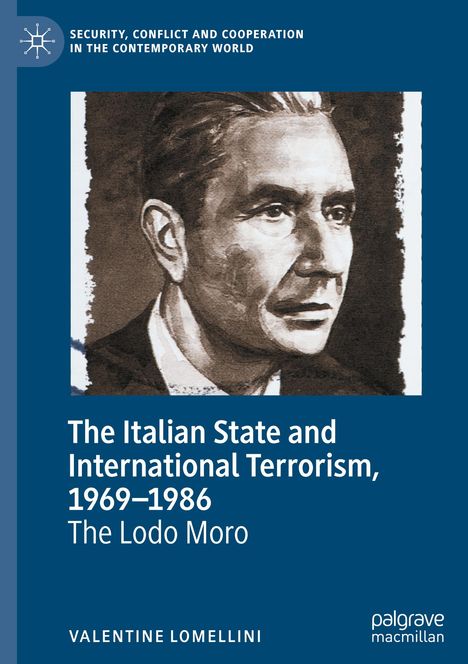Valentine Lomellini: The Italian State and International Terrorism, 1969¿1986
The Italian State and International Terrorism, 1969¿1986
Buch
- The Lodo Moro
lieferbar innerhalb 2-3 Wochen
(soweit verfügbar beim Lieferanten)
(soweit verfügbar beim Lieferanten)
EUR 125,17*
Verlängerter Rückgabezeitraum bis 31. Januar 2025
Alle zur Rückgabe berechtigten Produkte, die zwischen dem 1. bis 31. Dezember 2024 gekauft wurden, können bis zum 31. Januar 2025 zurückgegeben werden.
- Springer Nature Switzerland, 01/2024
- Einband: Gebunden, HC runder Rücken kaschiert
- Sprache: Englisch
- ISBN-13: 9783031431593
- Bestellnummer: 11730542
- Umfang: 272 Seiten
- Auflage: 2023
- Gewicht: 463 g
- Maße: 216 x 153 mm
- Stärke: 20 mm
- Erscheinungstermin: 9.1.2024
- Serie: Security, Conflict and Cooperation in the Contemporary World
Achtung: Artikel ist nicht in deutscher Sprache!
Klappentext
This book sheds light on the so-called Moro Doctrine , an Italian state security policy which has been portrayed in literature as an under-the-counter agreement made between Italy and Palestinian movement during the Cold War. The Moro Doctrine, or Lodo Morö as it is known in Italy, aimed to protect the peninsula from Palestinian attacks by allowing terrorists to use Italian territory as a base for weapons and guerrilla fighters.Responsibility for the Lodö was instrumentally placed on Aldo Moro, the five- time Prime Minister of Italy, after his death, and since then his name has become indelibly linked with the shame of having negotiated with Palestinian terrorists. Thanks to records collected from over twenty archives in Italy, the USA, France, Germany, Britain and Russia, concrete evidence shows that the significance of this agreement needs to be rethought. The author argues that the decision to adopt the Lodo was not solely made by Moro, but also involved key figures of the Christian Democrat and Socialist parties, various magistrates and even the President of the Republic. It illustrates how terrorism was used as an effective tool in international diplomacy to influence foreign and domestic policies.
Offering a re-examination of Italian counter-terrorist policy, this book analyses how Italy responded to international terrorism during the Cold War, providing a useful read for those researching Italian and European history, Cold War studies, the history of international relations and diplomacy, and Middle-East history.


